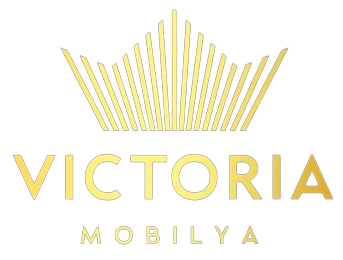
But the stronger one’s drinking habit, the harder it can be to cut back. Evaluate the coverage in your health insurance plan to determine how much of the costs your insurance will cover and how much you will have to pay. Ask different programs if they offer sliding-scale fees—some programs may offer lower prices or payment plans for individuals without health insurance.
No substitutes or medications
To prevent this, your doctor may suggest a treatment program where you stay overnight. That way, you can get 24-7 support for your mental health and physical symptoms. Alcoholics Anonymous® (also known as “AA”) and other 12-step programs provide peer support for people quitting or cutting back on their drinking.
How Long Does Addiction Recovery Take?
If you know someone who has firsthand knowledge of a program, it may help to Halfway house ask about their personal experience. People with AUD can feel isolated and rejected due to stigma—the negative attitudes and false beliefs about AUD that they have heard from others or have picked up from society at large. Evidence-based AUD treatment is available, change is possible, and most people who have AUD recover or markedly improve.

Examples of Healthy Sober Habits:
However, quitting cold turkey or tapering is not advisable for people with an AUD. Talk to a medical professional if you have any concerns about tapering off alcohol. They can provide recommendations to help you avoid harmful side effects. I’m a writer, competitive chess player, Army veteran, physicist, and former professional heavyweight boxer. My work focuses on self-development, realizing your potential, and sobriety—speaking from personal experience, having overcome both poverty and addiction.
Online Therapy Can Help
For those who prefer nonreligious support groups, there are alcohol support groups other than AA. Non-12-step groups take a secular approach to treatment and recovery. Professional counseling is beneficial for people who have attempted and failed to give up alcohol independently. Outpatient alcohol treatment tends to cost much less than inpatient care. Outpatient treatment is appropriate for those whose addiction is not severe, whose lives are fairly stable, and willing to participate in and commit to the treatment plan.
It can also be problematic if the people in your immediate social circle continue to drink or if they don’t support your plans to quit. There are times when cutting back on your drinking can be helpful, but there are times when quitting alcohol altogether is the best solution. If you want to stop drinking for good, don’t let past relapses discourage you from trying to quit. It is normal and even expected for people to try to quit at least once before achieving sobriety. In starting healing and sobriety journey, people often discover that alcohol was masking deeper pain—trauma, anxiety, depression or other mental health challenges.
You may experience alcohol withdrawal symptoms when you quit drinking alcohol. This can happen whether you’re quitting alcohol cold turkey or tapering. A severe case of alcohol withdrawal can lead to complications, some of which can be life-threatening.

Kendra Cherry, MS, is a psychosocial rehabilitation specialist, psychology educator, and author of the “Everything Psychology Book.” It might also be worth checking out a 12-step program in your area, like Alcoholics Anonymous or SMART Recovery, to see if it feels like something that might be useful for you. Consider writing them down and keeping notes on hand, so you have a physical reminder to look at when you need it to help motivate you to stay the course.
Getting Started With Drinking Less
The newer types of these medications work by offsetting changes in the brain caused by AUD. The evidence suggests that the free and flexible assistance provided by mutual-support groups can help people make and sustain beneficial changes and, thus, promote recovery. Ultimately, there is no one-size-fits-all solution, and what may work for one person may not be a good fit for someone else. Simply understanding the different options can be an important first step.
- Quitting drinking can also help you improve your control over anger if you’ve experienced problems with rage and alcohol.
- A professionally-conducted intervention session will have a much higher success rate than an amateur-led one.
- If you think you might have an alcohol use disorder, there are evidence-based treatment options that can help you to quit drinking.
- This didn’t motivate me to quit, but I was afraid of how bad things could get if I drank too much.
- The NIAAA also offers pointers about resources for low- and no-cost treatment and support options, like getting in touch with your state’s agency for substance abuse help.
You don’t need to be a writer—just be honest with yourself and nonjudgmental. Whether you’re quietly questioning your drinking habits or facing serious consequences, this guide offers 10 practical, easy-to-follow steps to help you move toward a healthier, more hopeful life. You may not need to completely reinvent your life to quit drinking, but making a few changes in your surroundings to help avoid alcohol triggers can make a big difference. Family and friends can provide encouragement and support when you stop drinking. By opening up about your relationship with alcohol, you might also encourage others to explore their own drinking habits. It’s important to know that if your body has developed a strong dependence on alcohol, trying to quit “cold turkey” can be hazardous to your health.
Drug Rehab Success Rate Explained: What Influences Recovery Outcomes
Psychological symptoms can include irritability, anxiety and restlessness. It’s hard to quit drinking when you only see yourself as a person who normally drinks but is taking a break. Whether your goal is long-term or short-term sobriety, this is the wrong mindset. A smart easiest way to stop drinking recovery strategy is to completely embrace a new identity as a person that does not drink.
There are many different options and resources that can help you learn how to quit drinking. Just remember that there is no single approach that works for everyone. Perceived social support can play an important part in alcohol use recovery. In addition to therapy, support groups, and self-help options, you should consider some of the medications that are available that may improve your chances of quitting alcohol successfully. Journaling helps you process your thoughts and track your journey. Start by writing about your drinking habits, your triggers, your emotions and your victories.
